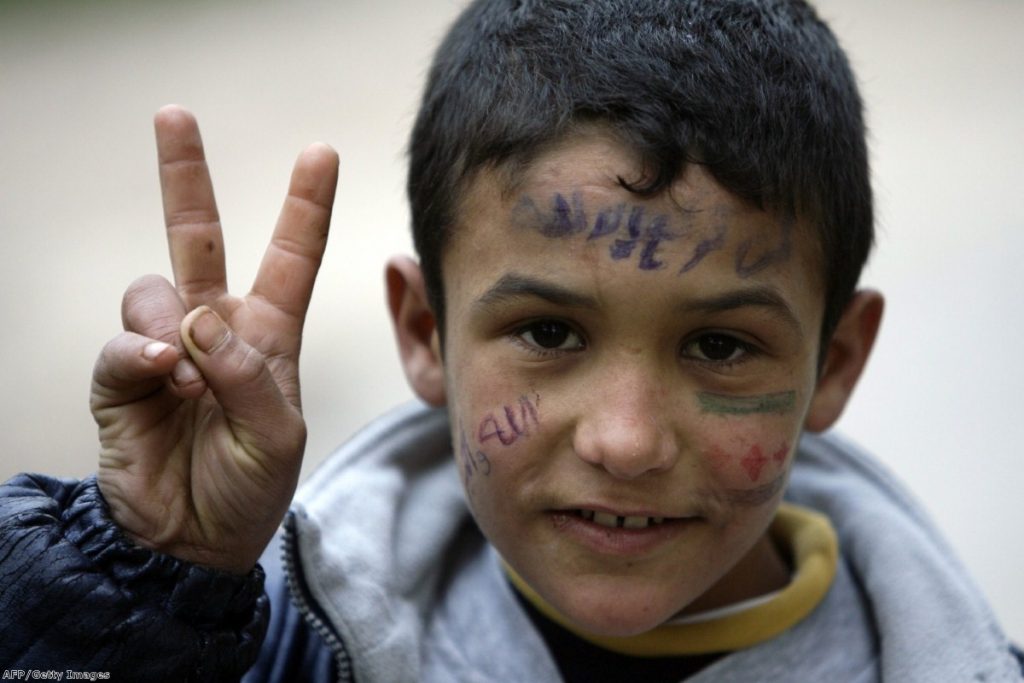Germany’s ten-point refugee plan shows how irresponsible Britain has become
The images keep on coming: from Calais, from the tiny, ramshackle boats crossing the Mediterranean, from Hungary and Serbia, from the Islands of Greece. We are witnessing the greatest movement of people since the end of the Second World War and the single greatest demand for Europe to live up to its rhetoric since it was constructed as a political project.
Britain's role has been particularly useless. Our press has been more concerned with highlighting the inconvenience of British tourists having to – gasp – actually see refugees than it has been with the plight of the refugees themselves. Our ministers have shot down any attempt to share the burden of those landing on Europe's shores. Our prime minister has engaged in the most base, dehumanising language. For weeks, the main topic of debate was whether we should send the army to Calais. This was never accompanied by a serious suggestion about what they would do, so the impression was left that many on the right believed we may need to simply start shooting the refugees.
It's been even worse in other parts of Europe. Poland, Slovakia and the Czech Republic are only accepting Christian families. Muslims can die, as far as they're concerned.
This is what Miriam Shaded, head of Estera, the Polish foundation that arranged the selection, had to say:


"They [non-Christian refugees] can be a threat to Poland. I think it is a great way for Isis to locate their troops . . . all around Europe. And if these people are not Isis representatives, [in Syria] their lives are not in danger, so then it is labour migration. If they are Muslim, they will not be killed because they are Muslims, because they believe in the same as Isis.”
Germany has been a beacon amid this moral shambles of ignorance and short-sighted selfishness. It expects to accept 800,000 refugees this year – more than all EU states combined in 2014.
Now its foreign minister, Frank-Walter Steinmeier, and economics minister, Sigmar Gabriel, have proposed a ten-point plan for how the EU handles this crisis. It is generous, serious, level-headed and balanced.
It accepts that re-admission to the country of origin must be a priority in the case of failed asylum seekers and that technical and financial support to those countries should be conditional on that happening. It requests an EU-wide understanding of safe countries of origin including, for obvious reasons, those western Balkan states aiming to join the EU. And it accepts that the only long term solution comes in the form of political initiatives to fight the causes of flight from Libya, Syria, Afghanistan and the rest of the region.
But alongside those policies are priorities of the sort which should be the base assumptions of civilised states. They demand EU-wide standards on humane conditions for receiving refugees, a common European code of asylum and fair distribution within the EU.
"The citizens of our country are helping to receive and integrate refugees into our society as never before," the German ministers warn.
"This solidarity will only be maintained long-term if people see that the refugee crisis is being approached fairly throughout Europe. A state of affairs in which – as today – only a handful of member states shoulder the entire burden is just as unsustainable as a system that forces those countries that happen to form the outer border of the EU to take the strain alone. We need binding and objective criteria for refugee quotas for all member states that take their respective capabilities into account."
They also demand "lasting and systematic financial support" for the municipal authorities in countries, like Hungary, Greece and Italy, which are under particular strain and properly funded rescue services in the Med.
"We cannot stand idly by and watch people risk their lives trying to get to us. The Mediterranean Sea cannot be a mass grave for desperate refugees. Europe’s humanitarian legacy, indeed our European view of humanity, are hanging in the balance."
Daringly – and against what must be considerable domestic pressure – they demand a new immigration bill in Germany which "facilitates lawful stays for the purposes of employment" to reduce the burden on the asylum system.
It is a truly grown-up set of recommendations. Even aside from the obvious moral imperative, they are the simple practical requirements of a massive influx of people. Some commentators on the right insist that by allowing residency like this you encourage demand. It is an expression of outright denial, as intellectually bankrupt as it is morally bankrupt. The demand is patently already there. Our refusal to account for it has not diminished it.
Even if one disagrees with the German ten-point plan, it has more than enough to recommend it as a weighty intervention which deserves a similarly weighty response. But it is not even getting that. The Home Office won't comment on it except to refer back to their existing objection to a mandatory quota system. We are witnessing a failure of moral and practical responsibility on a continental scale.
Supporters of the EU often say that we need an international system to deal with international problems. One struggles to imagine a more obviously international problem than this one. And yet only Germany appears to have the moral vision required of it.

